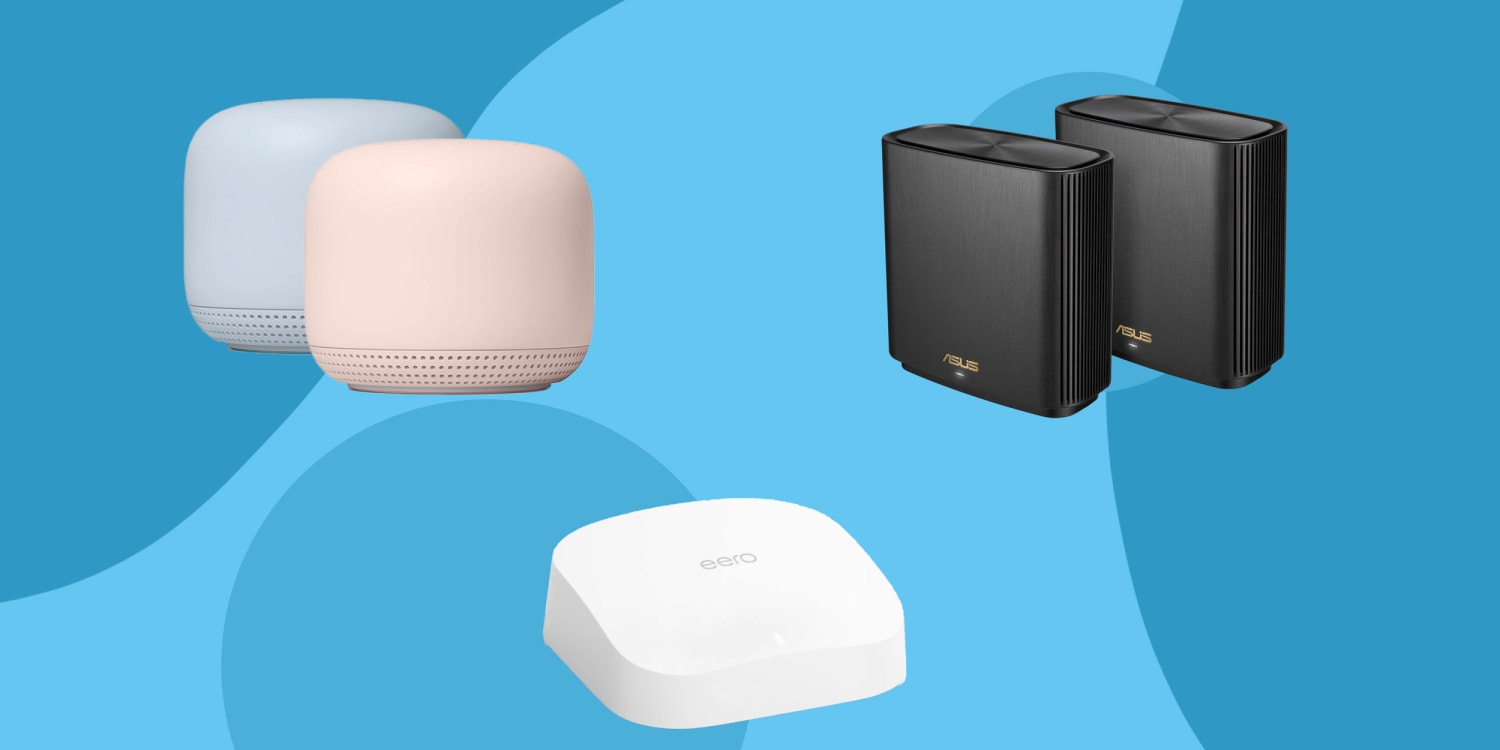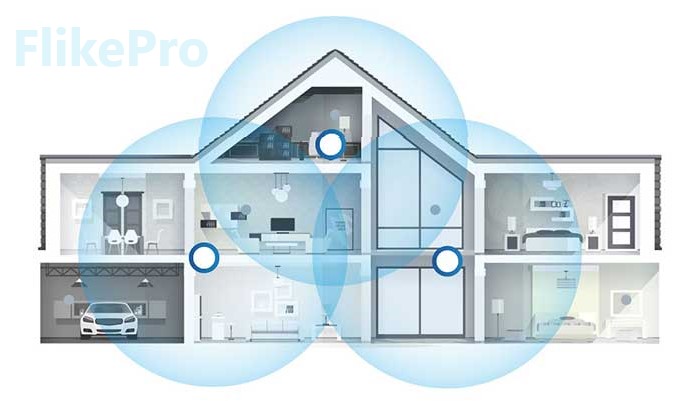A mesh Wi-Fi system is a type of network that uses multiple devices to extend the signal throughout your home or office. Unlike a traditional router, which has a limited range, a mesh system can cover a much larger area without losing any speed or performance. Each node in the system acts as its own mini-router, creating an uninterrupted signal that can reach every corner of your space.
When it comes to home networking, there are a lot of options out there. But one option that is becoming increasingly popular is the mesh Wi-Fi system.
So, what exactly is a mesh Wi-Fi system?
A mesh Wi-Fi system is a type of wireless network that uses multiple access points to extend the coverage area of the network. The benefit of this type of system is that it can provide a much more reliable and consistent connection than a traditional single router setup.
Another advantage of mesh Wi-Fi systems is that they are very easy to set up and use.
In most cases, you can have the entire system up and running in just a few minutes. And if you ever need to expand your network, adding additional access points is a breeze.
If you’re looking for a new home networking solution, definitely consider checking out a mesh Wi-Fi system.
It could be exactly what you’ve been looking for!

Credit: www.nbcnews.com
What Does a Mesh Wifi System Do?
A mesh WiFi system is a type of wireless network that consists of multiple access points, or nodes, that work together to create a single cohesive network. Unlike a traditional WiFi network, which typically has one router and one or more range extenders or repeaters, a mesh network uses multiple access points that are all connected wirelessly. This creates what is essentially a large wireless web, providing better coverage and more reliable connections than a traditional WiFi network.
Mesh networks are becoming increasingly popular as the number of devices that need to be connected to the internet continues to grow. With so many devices online at once—including smartphones, laptops, tablets, smart TVs, gaming consoles, and more—a traditional WiFi network can often become overloaded and bogged down. A mesh WiFi system helps to alleviate this by spreading the load across multiple access points.
In addition to providing better coverage and reliability than a traditional WiFi network, mesh systems also tend to be easier to set up and manage. Many come with companion apps that make it simple to see which devices are connected to which node and make any necessary adjustments if needed.
What is the Difference between Mesh Wifi And Regular Wi-Fi?
Most people don’t know the difference between mesh WiFi and regular WiFi because they are both ways to connect to the internet wirelessly. Both have their pros and cons, but mesh WiFi is becoming more popular because it has a better range and can be customized to fit your home’s specific needs. Regular WiFi uses a single router that broadcasts a signal to all devices in range.
The further away a device is from the router, the weaker the signal becomes until it eventually cuts out entirely. This is why you often have dead spots in your home where devices can’t connect to the internet even though they are in the range of the router. Mesh WiFi uses multiple routers (or nodes) that work together to create a single network.
The benefit of this is that there are no dead spots because each node repeats and strengthens the signal as it passes through. Nodes also communicate with each other so they can automatically reroute traffic if one node goes offline for any reason. The downside of mesh WiFi is that it can be more expensive than regular WiFi because you need to buy multiple nodes.
It can also be tricky to set up if you don’t know what you’re doing. But overall, mesh WiFi is a more reliable and flexible option that is worth the investment if you need wireless internet in your home.
Is a Mesh Wifi Network Better?
A mesh WiFi network is a type of wireless network that uses multiple access points to extend the coverage area of the network. Mesh networks are typically used in large homes or office buildings where there is a need for coverage over a large area. There are several benefits of using a mesh WiFi network over a traditional wireless network. One benefit is that mesh networks are not as susceptible to interference from other devices, such as Bluetooth devices or microwaves.
This means that you will likely have a more stable connection with fewer dropped signals. Another benefit of mesh WiFi networks is that they can be easily expanded. If you need additional coverage, you can simply add another access point to the network.
This is not possible with traditional wireless networks, which would require you to replace the router entirely if you wanted to expand the coverage area. Finally, mesh WiFi networks tend to be more reliable than traditional wireless networks since there are multiple access points involved. If one access point goes down, there are still others that can provide connectivity.
This redundancy makes mesh WiFi networks ideal for mission-critical applications where downtime is not an option. Overall, mesh WiFi networks offer many advantages over traditional wireless networks and are well worth considering if you need extended coverage in your home or office building.
Does Mesh Wifi Replace Router?
No, mesh WiFi does not replace your router. A mesh network consists of multiple devices that wirelessly connect to create one seamless network. Your router is the main device that connects your home internet to the world wide web and manages all of the incoming and outgoing data for your home network.
While a mesh network can improve WiFi coverage in your home, it cannot replace your router. If you have a single router and are looking to expand your WiFi coverage, you can add mesh nodes to create a mesh network. However, if you are starting from scratch or looking for a new system, you will need to purchase both a router and at least one node.
What is Mesh Wifi (& Why You Should Absolutely Get One)
Wifi Mesh Vs Extender
If you’re looking to extend the reach of your home WiFi network, you may be wondering whether you should use a mesh system or a WiFi extender. Both options can help improve your WiFi signal, but they work in different ways. Here’s a rundown of the key differences between WiFi mesh systems and extenders to help you decide which is right for you.
Mesh Systems vs Extenders: How They Work
A mesh system consists of multiple nodes that work together to create a single wireless network. Nodes are placed throughout your home, and each one connects wirelessly to the others to create a single “mesh” network.
This allows for much greater coverage than a traditional router/extender setup, as there are no dead spots in the coverage area. Additionally, mesh systems often provide features like parental controls and guest networking that can be controlled from a central app.
Extenders, on the other hand, connect wirelessly to your existing router and then re-broadcast the signal.
This extends the reach of your WiFi network, but can also lead to some dead spots in coverage if not placed properly. Some extenders also have additional features like Ethernet ports or USB connectivity, which can come in handy if you need hardwired connections for gaming or streaming 4K video content.
Conclusion
A mesh Wi-Fi system is a type of wireless network that uses multiple devices to create a single, seamless network. Unlike a traditional Wi-Fi router, which has a limited range, mesh Wi-Fi systems use multiple nodes, or points, to extend the signal throughout your home or office. This allows you to have a strong, reliable connection no matter where you are in the building.





